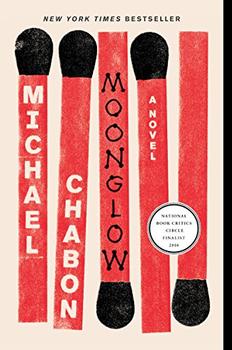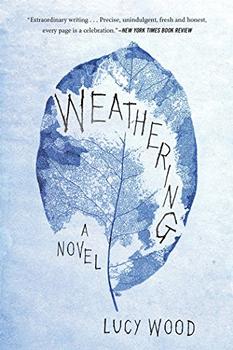Summary | Excerpt | Reviews | Beyond the book | Read-Alikes | Genres & Themes | Author Bio

Lady, Vee and Delph Alter are the last descendants of Lenz Alter (based on the real-life chemist Fritz Haber), the man behind the Manna Project that developed the world's first chemical fertilizer. This same science led to the invention of chlorine gas, which Germany used to kill tens of thousands of soldiers during WWI. Decades later, chlorine gas gave way to the development of Zyclon, used to kill millions of Jews during WWII. Somehow, the Alter family has carried Lenz Alter's shadow of death for four generations, their guilt littering the family tree with numerous suicides. Now it is Lady, Vee and Delph's turn, but how do three sisters write one suicide note?
What is the answer? It is the same as the answer to "How do porcupines make love?" Very carefully. While this might sound flippant in light of the somber severity of the subject matter, it actually echoes the tone of this novel perfectly. In fact, this story is about as lively as a book about death could ever be, and its subject matter is the primary reason why The Reunion of Ghosts is so utterly fascinating. On the one hand, we have three sisters, preparing to kill themselves. However, unlike (almost) all of their ancestral role models, they have decided to tell their family's story and thereby leave this world with an explanation, finally.
My emphasis of the word "finally" here, if you think of it in all senses of that word, is also a clue to this book, because of its double meaning, which (almost) makes it funny. One of Judith Claire Mitchell's conceits is to counterbalance the depressing aspects of her situations with just enough humor to avoid sounding maudlin. For example, she generously scatters puns throughout the storytelling, which the sisters blame on their father's love of word play, particularly in the English language. Of course, these and the many wry remarks and witty insights Mitchell uses could easily have sounded ridiculous, however, she places them in such an artful way that they come exactly when we least expect them, and just when we start to feel an overcast of gloom. Furthermore, she mirrors these juxtapositions with Delph's "horizontal light," which she sees with her contemplations on death.
A unique voice is at work here. Instead of each of the three sisters speaking in first person, or an omnipresent third person narrating, the much-underused first person plural voice is used throughout almost the whole novel. In this way, there is no individual protagonist. We think, instead, of these three as a single unit, even as we learn about their separate lives. Since their harmonious voice enlightens us about the three generations that preceded them, their humor allows for an ironic, and often comical, slant on their family's past.
All of this makes for one of the most cleverly told stories I've come across in a very long time, despite the fact that some of the eras and subjects discussed are practically dramatic clichés. Among these are two World Wars, Jews running away from persecution, unhappy marriages, lonely lives, widowhood, estranged relatives, affairs, incest and cancer. That all of these and more are bundled into one family's history only makes these sisters' wish to cut their lives short all the more understandable. In fact, the only thing we might not understand is why it took them until 1999, when they were in their mid-to late-40s, to finally decide it was time.
Actually, there is one other thing we might not understand. That is the last chapter of this book, which I thought was somewhat superfluous and a touch too harsh (and is why I would give this book a 4.5 rating if I could), especially considering how carefully concise and light the rest of the book felt. Nevertheless, I can see why Mitchell kept this in, and despite this tiny criticism, I can still highly recommend A Reunion of Ghosts.
![]() This review was originally published in The BookBrowse Review in April 2015, and has been updated for the
February 2016 edition.
Click here to go to this issue.
This review was originally published in The BookBrowse Review in April 2015, and has been updated for the
February 2016 edition.
Click here to go to this issue.

If you liked A Reunion of Ghosts, try these:

by Michael Chabon
Published 2017
Following on the heels of his New York Times bestselling novel Telegraph Avenue, Pulitzer Prize-winning author Michael Chabon delivers another literary masterpiece: a novel of truth and lies, family legends, and existential adventure - and the forces that work to destroy us.

by Lucy Wood
Published 2017
A dreamlike tale tale that explores big topics - belonging, mortality, love - though the lives of three women (one who is dead), and old house, and a river....
Your guide toexceptional books
BookBrowse seeks out and recommends the best in contemporary fiction and nonfiction—books that not only engage and entertain but also deepen our understanding of ourselves and the world around us.